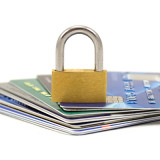Harassing phone calls. Credit report errors. Payday loan company employees showing up at a customer’s workplace demanding money. These are just some of the more troubling findings in a recent report from the Consumer Financial Protection Bureau (CFPB), which was set up in the wake of the financial meltdown to police financial products and services.
The latest Consumer Financial Protection Bureau report highlights the agency’s regulatory supervisory activities between November 2013 and February 2014. According to the CFPB, which has a nationwide network of examiners whose job it is to review how well financial services companies are complying with the law, credit bureaus are not always properly handling credit report errors. This is important for a consumer’s financial protection because mistakes about how someone repays their debts can hurt their chances for qualifying for a mortgage or car loan or even nix their chances of landing a job.
Although the CFPB didn’t name the credit bureaus in its report, it did note that at least one had not been properly processing documentation provided by consumers seeking to dispute an error on their credit report. The law allows consumers to provide documentation to correct credit report errors, information that the credit bureaus are supposed to forward along to creditors so that a dispute can be resolved. Because this was not happening, the CFPB issued a warning to the non-compliant credit bureaus.
The CFPB also found some debt collectors egregiously violated the Fair Debt Collection Practices Act (FDCPA). The FDCPA is an attempt to rein in abusive practices and harassment by companies seeking to recoup money loaned to consumers. Yet the agency found that constraints imposed by the FDCPA were routinely ignored. For instance, one unnamed company made around 17,000 phone calls to consumers outside hours allowed by the FDCPA. “In addition, the entity also violated the FDCPA when it repeatedly contacted more than one thousand customers, contacting some consumers as often as 20 times within two days,” says the report.
Additionally, the FDCPA does not permit debt collectors to make false or misleading statements in their efforts to collect money they’re owed. Investigators from the CFPB discovered one company was routinely filing lawsuits riddled with factual inaccuracies about how much a consumer owed. “When the consumer filed an answer, the entity would dismiss the suit because it was unable to locate documentation to support its claims,” says the report.
The CFPB also cited one payday loan company for sending employees to the workplace of consumers in order to collect debts. This was occurring despite the fact that consumers had specifically requested that it stop and the practice being in violation of the Dodd-Frank Act.





